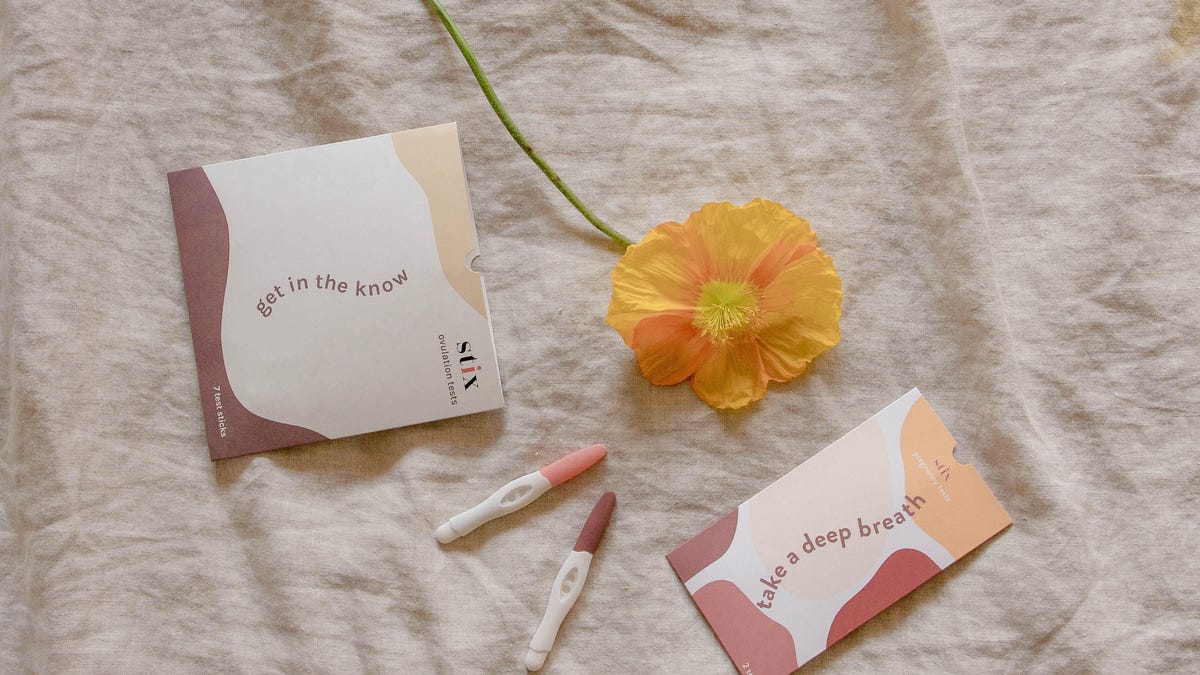This home ovulation testing service thinks you shouldn't have to forgo privacy to get pregnant
A subscription from Stix doesn't involve any apps collecting your fertility information.

Stix has ovulation tests and pregnancy tests for users to order online.
More than 6 million women in the US struggle to become pregnant or stay pregnant, according to the Department for Health and Human Services. They typically use home ovulation tests and period-tracking apps to help them determine their best window to conceive. On Tuesday, female-founded pregnancy test provider Stix launched a new subscription service to help women determine their most fertile days -- without connecting to any app that could leak sensitive data.
Pregnancy tests and ovulation kits are readily available in stores or online. But Stix aims to make the purchase about more than just the transaction, co-founder Cynthia Plotch told CNET. Almost all of the products on the market are packaged as if everyone wants to get pregnant. Not everyone does.
Stix's tests detect the surge in luteinizing hormone in urine, which occurs a day or two before ovulation, signaling the fertile window when a person is most likely to conceive. Having this information can help people make the best choices for their own lives, whether or not they are trying to conceive.
The FDA-approved tests cost $17 for a one-time set of seven or $13 for a monthly subscription pack. Subscriptions are the best option for people who need tests regularly, Plotch said -- for example, those trying to get pregnant, or those who have irregular periods and want to better track their cycles. The tests have a three-year shelf life.
Read more: Fertility, pregnancy prevention and more: Why you should be tracking your period
Seeking secure fertility tools
Stix's test is shipped in a plain envelope, so no one but you knows what's inside. And on the topic of privacy, the company doesn't use an app, so there are fewer privacy issues at hand than there might be with other period-tracking apps.
Stix's privacy policy says that the only information the company collects is that needed to ship the items to your home. The site does allow for information to be collected, so it can advertise to you. Stix's policy says that your information will be shared with Shopify and Google Analytics, but provided a way to opt out of Google Analytics and a link to Shopify's privacy policy. Stix also gives ways for you to opt out of targeted advertising, tracking and data retention.
Stix's tests arrive in a discrete package for privacy.
Plotch said that Stix retains the basic information customers enter when they make an account and that the company works with third-party software to store the data securely.
While apps are convenient ways to interact with companies and products, they're not immune to data leaks. Last September, multiple period trackers were found to be sharing sensitive information with Facebook. The apps included Maya by Plackal Tech and MIA by Mobapp Development, My Period Tracker by Linchpin Health, Ovulation Calculator by Pinkbird and Mi Calendario by Grupo Familia.
More recently, in January, the period-tracking apps Clue and My Days were collectively sharing user data with at least 135 advertising-related companies. The data shared included GPS locations, IP addresses, details about gender, sexuality and political views.
Stix the company is just over a year old and run by Plotch and her co-founder Jamie Norwood. Plotch said that the team isn't planning to create an app, but if the consumer base wants one, nothing is off the table.
"Regardless of your age, location, or anything else -- all women deserve access to quality healthcare and health information," Plotch said.

